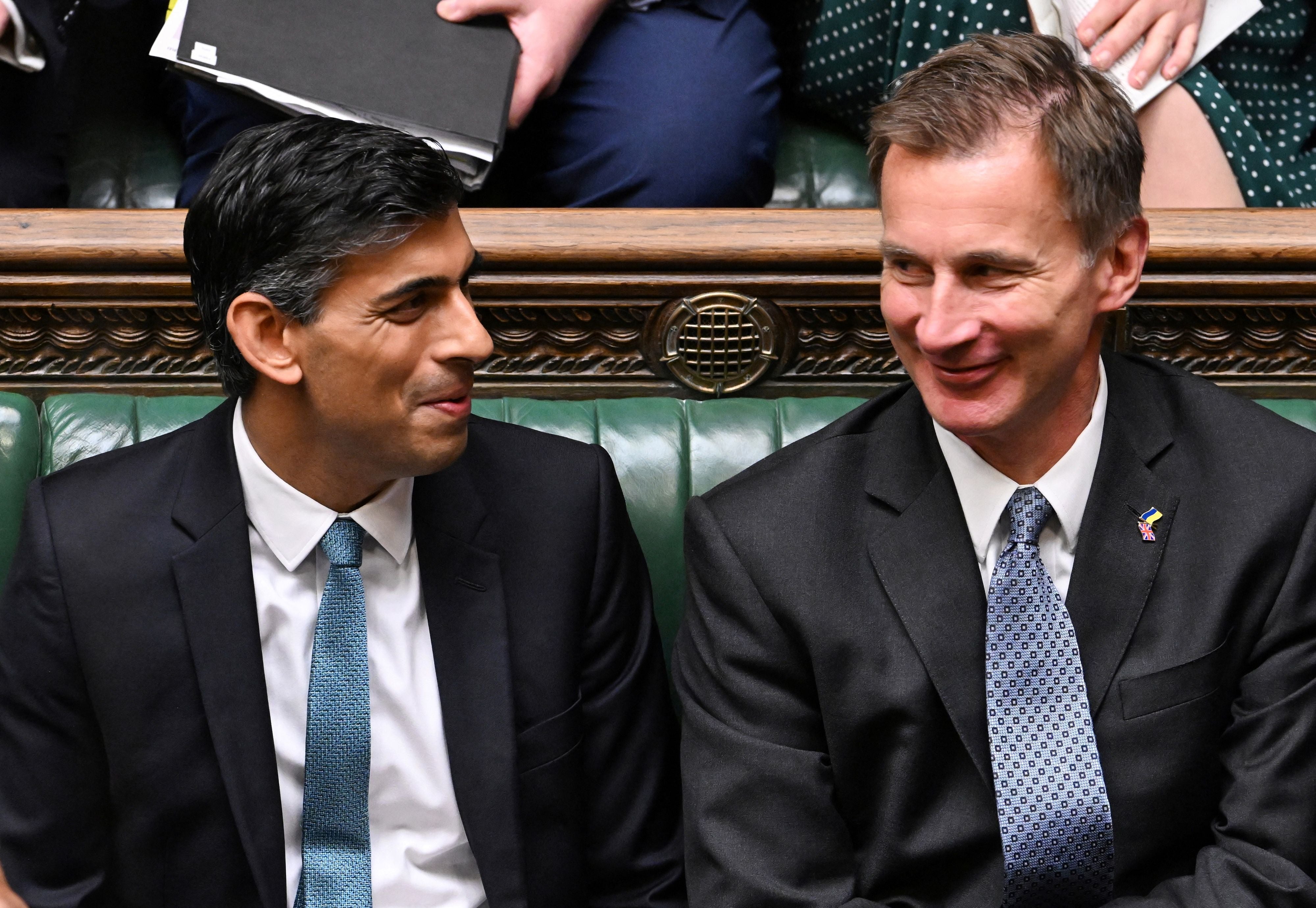Millions face mortgage pain as Bank of England raises interest rate to tackle ‘stubbornly high’ inflation
UK to avoid recession, forecast finds – as economists warn Bank may have gone too far in raising rate

Millions of Britons are facing painful increases in their mortgage costs after the Bank of England raised interest rates for the 12th time in a row to tackle “stubbornly high” inflation.
The Bank rejected accusations that it had gone too far and was “overcorrecting” for the inflation crisis after the Monetary Policy Committee (MPC) voted to hike the base interest rate from 4.25 per cent to 4.5 per cent.
The central bank warned inflation is set to decline less rapidly this year than hoped because food price hikes have gone on longer than expected, partly due to the Ukraine war and poor harvests in Europe.
However, despite ongoing cost of living pressures and mortgage payment pain, the Bank offered a more optimistic forecast for the wider economy – predicting Britain would avoid recession in the year ahead.
Labour said Rishi Sunak should take the blame for “the Tory mortgage penalty”, saying Britons coming off fixed-rate mortgages will be “wracked with anxiety” about paying hundreds of pounds more a month.
Homeowners whose mortgages directly track the base rate face an average annual hike of around £5,000 as a result of the 12th hike in a row, according to UK Finance. The body warned that the average tracker payment had increased £420 a month since the base rate hikes began.
Offering a sunnier outlook for growth, the Bank now expects that gross domestic product (GDP) will not fall during any quarter this year. Governor Andrew Bailey warned that economic growth is “still weak”, but said the economy is being more “resilient” than expected.
In February, the committee believed the economy could fall into a shallow recession starting from the first three months of the year. Now it expects GDP to rise by 0.25 per cent this year before a 0.75 per cent increase next year and the year after.
Mr Bailey said a big drop in energy costs explains part of the more optimistic outlook. “The biggest news has been the very substantial fall in gas prices and that does feed through, clearly, and that’s fed through in a positive way,” he said.
The governor admitted to “considerable uncertainties” about how fast inflation will come down this year but expects the “sharp fall” to begin to be seen in April’s headline figure for Consumer Prices Index inflation, which remained at 10.1 per cent in March.

The National Institute of Economic and Social Research warned on Thursday that Mr Sunak is at risk of failing in his pledge to halve inflation in 2023 – forecasting that it would still be at 5.4 per cent at the end of the year.
But the Bank said it expects inflation to reach just over 5.1 per cent by the final quarter of this year, which would mean the Tory prime minister would manage to hit his pledge to halve inflation.
The Liberal Democrats called on chancellor Jeremy Hunt to resign if the inflation target is not met, saying he was “nowhere near” his goal of bringing down “sky-high levels of inflation”.
Mr Hunt said it was “good news” that the Bank is no longer forecasting recession but acknowledged today’s interest rate rise “will obviously be very disappointing for families with mortgages”.
Labour’s shadow chancellor Rachel Reeves said Mr Sunak “must admit his responsibility for the Tory mortgage penalty leaving so many worse off”.

Just two of the Bank’s nine-member MPC voted to keep interest rates at 4.25 per cent. CBI deputy chief economist Anna Leach backed the increase, arguing that the Bank is rightly concerned that “stubbornly high” inflation could become “entrenched”.
But left-wing IPPR think tank said the Bank should have held off raising interest rates again, warning of a “continued increase in inequality”. And right-wing think tank the Institute of Economic Affairs also warned that the Bank was at risk of “overcorrecting”.
The Institute of Chartered Accountants in England and Wales said the Bank risked “overdoing” rate rises, saying the increase will come as “a nasty blow” to homeowners and firms.
The Federation of Small Businesses also accused the Bank of being “out of touch” with the reality of rate rises – saying firms were being “hammered” by increased borrowing costs.
Mr Bailey raised the possibility of further interest rate hikes this year. “If there were to be evidence of more persistent [inflationary] pressures, then further tightening in monetary policy would be required,” he said.
Meanwhile, the governor said the Bank’s chief economist Huw Pill chose the wrong words when he warned that people in Britain simply had to accept they are “poorer” because of inflation.
“We are very conscious that all inflation is difficult, and particularly for those least well off,” he said. “I don’t think Huw’s choice of words was the right one in that sense, I have to be honest, and I think he would agree with me.”





Join our commenting forum
Join thought-provoking conversations, follow other Independent readers and see their replies
Comments